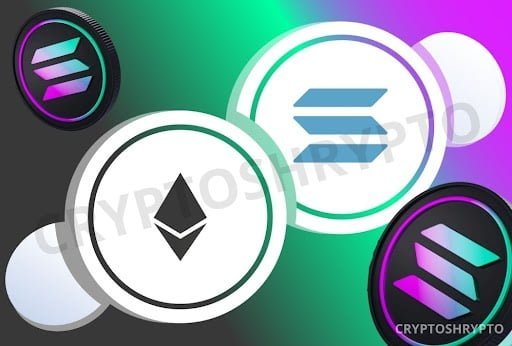According to Lubin, Solana gives excessive rewards to users who authenticate transactions on the network in comparison to the revenue generated by the transactions. As a result, he believes Solana must develop a more sustainable economic plan. “It’s normal,” he said. “Every project in our ecosystem is effectively faking it until they make it, or they die.”
Solana, one of Ethereum’s main competitors, which has faster transaction speeds and lower transaction costs.
Lubin is not the only one who disagrees. Other opponents have weighed in, alleging that Solana compromises security for the sake of efficiency. One of the reasons Solana may outperform Ethereum in terms of transaction throughput and transaction costs is that it eliminates some centralization, a critical pillar supporting blockchain technology. This makes it more sensitive to outages, which may have an impact on user experience, perception, and adoption.
Solana reacted to Lubin’s remarks by claiming that focusing on income does not reliably forecast the long-term viability of a blockchain’s economic model. Lubin’s remarks come amid significant financial investment in more efficient Ethereum competitors such as Solana, Avalanche, and Near Protocol as cryptocurrencies receive mainstream attention. However, Ethereum has taken over the majority of the decentralised financial sector, and the majority of non-fungible tokens are developed on top of Ethereum.
It’s worth mentioning that Lubin is also the CEO of ConsenSys, a $7 billion business with deep links to Ethereum. ConsenSys develops tools that make it easier for people to engage with the Ethereum network. One of its main products is MetaMask, a cryptocurrency wallet that is simply a record of specific sequences of numbers known as keys that are utilised in bitcoin transactions. Since 2020, about $330 million in transaction fees have flowed through MetaMask using a feature that allows users to trade tokens on Ethereum. Lubin founded ConsenSys Software in 2021 as part of a reorganisation process aided by Wall Street powerhouse JPMorgan Chase.
Nearly three dozen former workers of ConsenSys software’s predecessor, ConsenSys AG, asked for an audit of the reorganisation, claiming that the intellectual property linked with MetaMask and other major products was devalued. Lubin answered that ConsenSys was forthright in its conversations with the former workers, “understanding their worries.”




